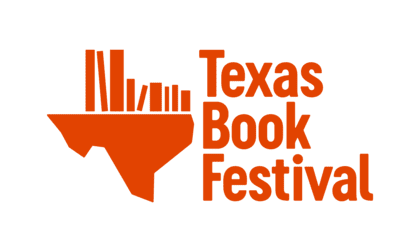Elaine Castillo was born and raised in the Bay Area. She studied Comparative Literature at the University of California, Berkeley. Her writing can be found on Freeman’s, Lit Hub, The Rumpus, and elsewhere. Her most recent short film, A Mukbang, was commissioned by the San Francisco Museum of Modern Art’s Open Space. America is Not the Heart is her debut novel, a soulful story about three generations of women in one family struggling to balance the promise of the American dream and the unshakable grip of history.
TBF: What was your favorite part about writing America Is Not The Heart and when did you know this was the story you had to tell?
ELAINE CASTILLO: Not sure if I have a favorite part about writing it, but I think the moment I figured out that Hero, not Roni or Paz, was going to be the main narrator, the world of the book opened up—the story to tell became clear, despite (or maybe because of) the fact that I had huge misgivings writing from the perspective of someone with Hero’s background and class privilege.
TBF: Could you explain how you chose the title and its relation to the title of Carlos Bulosan’s novel, America Is In The Heart? By the end would you say Hero still feels this way or does she find America to be in her heart ?
ELAINE CASTILLO: To be honest, it just started out as a kind of pun; I always thought America Is in the Heart sometimes sounded like it could be pronounced America Isn’t the Heart, which is why the last chapter of the book still has the conjunction. But for sure there’s a conversation to be had with that seminal book, with its still deeply relevant depictions of immigrant deprivation and exploitation, police brutality, white supremacy—as well as its notably misogynist passages, which have to be reckoned with as we examine its place in the canon. Re: Hero and her relation to title, I think the subversion of Bulosan’s title speaks to the whole question of America not being the heart, or in the heart; that, rather than enshrine idealized concepts of nationality or identity, there are other more granular, specific, lived ways of thinking about how we live, and especially how we live in community.
TBF: Which three books of immigrant journeys have touched you over the years and would you recommend that we read?
ELAINE CASTILLO: Jamaica Kincaid’s Lucy is the number one pick; frankly, it could be all three for its importance in my life. Just blew my head off when I first read it, and still does, every single time—what a knockout portrayal of female becoming and female freedom. For all its treasures and all its flaws, Carlos Bulosan’s America Is in the Heart; still the first book I ever read about the rural poor of the Philippines, in particular the province my mother came from, and the shock of recognition I felt upon reading it is still incomparable. Alexander Chee’s The Queen of the Night is maybe a wild card pick for this category, because it’s about a white American woman who essentially immigrates to Europe and then (spoiler alert) returns home. It’s searingly beautiful on how to make a self—in particular an American self—outside of America, and I haven’t sobbed at an ending that hard in years.
TBF: If you could have a fictional imaginary friend following you around all day who would it be?
ELAINE CASTILLO: I’m not sure this counts as fictional, but the narrator in Tommy Pico’s poetry, especially “Nature Poem” and “IRL,” is one of my favorite voices in writing, bar none: sublime, colloquial, vulnerable, hilarious, heart-crushing, piercingly smart. My favorite American poetry in a long, long time.
TBF: Where is your favorite place to write? Is that where you wrote this book?
ELAINE CASTILLO: I wrote most of this book on a jury-rigged 2008 laptop on a kitchen table in southeast London, where I lived at the time, and my neck and back problems can tell you that it was not my favorite place to write—but sometimes that’s just how the writing gets done, and you’re lucky for it. Take care of your bodies, kids!
Catch Elaine Castillo on Sunday, October 28 at the State Capitol E2.028 from 11:00 – 11:45 and at E2.010 from 2:00 – 2:45 at the 2018 Texas Book Festival!

